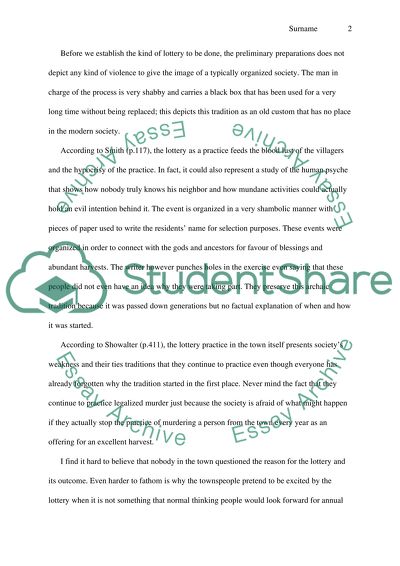Cite this document
(“The Lottery Research Paper Example | Topics and Well Written Essays - 1000 words”, n.d.)
Retrieved from https://studentshare.org/english/1476227-the-lottery
Retrieved from https://studentshare.org/english/1476227-the-lottery
(The Lottery Research Paper Example | Topics and Well Written Essays - 1000 Words)
https://studentshare.org/english/1476227-the-lottery.
https://studentshare.org/english/1476227-the-lottery.
“The Lottery Research Paper Example | Topics and Well Written Essays - 1000 Words”, n.d. https://studentshare.org/english/1476227-the-lottery.


